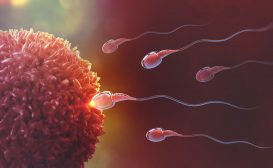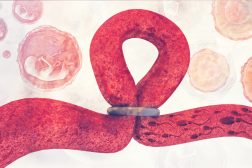Definition
noun
(biology) The act of ejecting or expulsion, as of the expulsion of semen from the male genital tract in response to sexual stimulation
Supplement
In biology, the term ejaculation refers to the sudden act of expulsion. It is often used to pertain to the process of releasing semen, which is the thick fluid comprised of sperm cells and secretions from the sexual glands at orgasm through the male reproductive organ. It is an essential process in reproduction. In humans, for instance, fertilization occurs when the male inseminates the female at copulation with the release of semen into the female reproductive organ. The spermatozoa present in the semen swim their way to reach and fertilize the ovum. Ejaculation typically occurs when the male is sexually aroused. Penile stimulation leads to erection and then to orgasm and ejaculation although ejaculation may occur without prior stimulation and orgasm as in the case of an ejaculation during sleep. This condition is colloquially referred to as wet dream. Under the control of the sympathetic nervous system, the semen is ejected from the urethra through rhythmic contractions. These contractions are part of the male orgasm. The bulbospongiosus and pubococcygeus muscles generate these contractions. Following orgasm is a refractory period (a period of relaxation) although this period may be absent in certain males and therefore enabling them to multiple orgasms.
The absence of ejaculation is called anejaculation whereas a painful or uncomfortable ejaculation is referred to as dysejaculation.
See also:
Related term(s):
Mentioned in:



